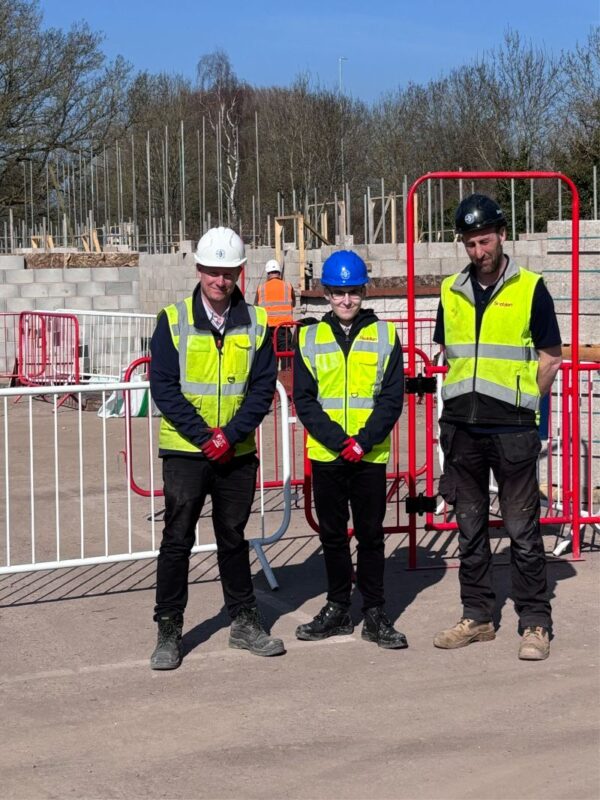Growth in sustainability qualifications reflects workforce demand

Maddie Booth explores the rise in sustainability qualifications and how this reflects the growing demand for green skills across different sectors. Maddie argues for the importance of a holistic approach to education for sustainable development, including the need to integrate environmental, economic and social perspectives into learning.
Embedding education for sustainable development (ESD) into the curriculum is central to our ability to meet the demands on our future workforce. Across all areas of our economy and society, sustainability is a necessary consideration as we face the challenge of climate change and its devastating impacts.
In the further education (FE) and training sector, a whole-system approach is required, incorporating sustainability considerations into each area of study and equipping all learners with green skills. Work to achieve this systemic change is underway, but such a shift will take time to achieve. In the meantime, there remains a gap in sustainability skills and knowledge. To fill this gap, providers are turning to specialised courses to offer learners ESD and to develop the green skills that are in high demand.
More qualifications on offer
Unsurprisingly in the current context, demand for, and supply of, sustainability qualifications is growing sharply. When the Education and Training Foundation (ETF) launched its Teaching Sustainability Tool last year – a list of available qualifications with sustainability as their primary topic – 120 qualifications were listed. The recently updated tool now lists over 300 qualifications. The emergence of so many new qualifications reflects our collective recognition of the urgent need to address environmental and social challenges. It also reflects the demand from industries and employers for the necessary skills to put sustainability into practice.
Meeting workforce demand
As the global job market undergoes a transformative shift towards sustainability-focused industries and roles, demand for sustainability skills grows. LinkedIn data in the World Economic Forum’s recent Future of Jobs report shows that the green job hiring rate has consistently outstripped overall hiring every year since 2019. Employers across sectors are recognising the value of professionals who can integrate sustainability principles into their work.
However, while global demand for green skills has risen by 40 per cent since 2015, only 13 per cent of the labour workforce possess the skills that organisations need and want. The FE and training sector will play a pivotal role in addressing this skills gap. From sustainable supply chain management to renewable energy engineering, sustainability qualifications are part of the solution, providing individuals with specialised knowledge and skills that align with the evolving demands of the job market.
Fostering a holistic approach
So, which areas do the new sustainability qualifications on offer cover? The subjects you might expect to form the core of sustainability qualifications – climate change, geography, energy – still dominate. But we are seeing an increase in qualifications centred on broader terms and topics including sustainability ‘skills’, sustainability ‘careers’, ‘sustainability in the workplace’, and ‘sustainable development’.
Such qualifications encourage holistic problem-solving, reflecting the fact that sustainability issues are inherently multifaceted and require an approach that integrates environmental, economic and social perspectives. Our upcoming workforce must have a comprehensive knowledge base and analytical framework to assess the interconnectedness of these factors and propose effective solutions.
Looking to the future
We know that education for sustainable development is delivered best when it is embedded into all subject areas and contextualised, rather than being delivered as a separate, standalone topic. Learners, themselves, have reported their preference for this approach to ESD. With this approach in mind, the ETF’s freely available Subject Specialism Guide supports educators, trainers and practitioners to explore sustainability content that can be brought into teaching and learning practice, and contextualised within each subject.
However, there is also demand to develop specific sustainability expertise and we welcome new qualifications to fill this need. Such qualifications equip professionals with the knowledge, skills, and values necessary to drive transformative change towards a sustainable future. Investing in these sustainability qualifications – in addition to the broader integration of ESD into the curriculum landscape – is a necessary investment in the well-being of our planet and future generations.

FE News on the go…
Welcome to FE News on the go, the podcast that delivers exclusive articles from the world of further education straight to your ears.
We are experimenting with Artificial Intelligence to make our exclusive articles even more accessible while also automating the process for our team of project managers.
In each episode, our thought leaders and sector influencers will delve into the most pressing issues facing the FE sector, offering their insights and analysis on the latest news, trends, and developments.












Responses